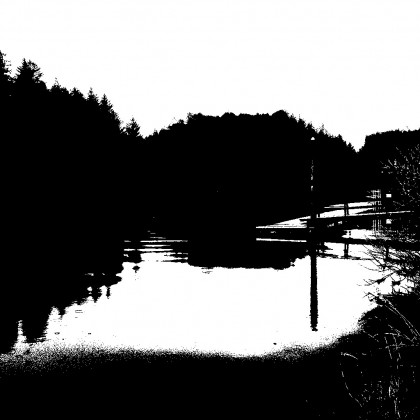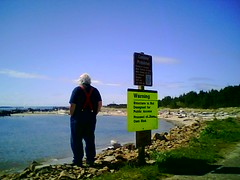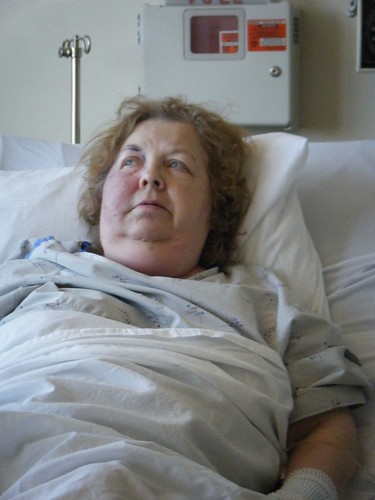The greatest certainty of life is that it is self-limiting.
This always happens around my birthday…The first time was when I turned four years old. Yes, you read that correctly, my existential quest began when I turned 4. It seems clear that I was born for this job, doesn’t it?
It was then that I first began contemplating the meaning of our existence and what it meant to have lived for 4 whole years already. On my fourth birthday I also realized – for the first time – that those numbers weren’t just counting up from the beginning of my existence; they were also counting down to its end.
This is where hope enters the picture: The first realization of the limitations of our lives is always a shock, I think, and our first desire is to find someone to tell us that everything will be okay – someone who will tell us that what appears to be an inevitability is really only illusion.And fortunately (or unfortunately, depending on your point of view) there is always someone there to tell us a good story to make us feel better.
Now we come to the problem of truth and the value we may place on it.
For me, life has always been about a search for the truth – the real truth, not the stories we’re told about it. For the first half of my life, I made the mistake of putting too much faith in stories told by others. I trusted them because they seemed sincere and knowledgeable. That was a mistake.
When I began to grasp the truth, I finally realized two guiding principles that shape the entire discussion about truth: First, is that everyone shares the same fears at a deep instinctive level about their own mortality, thus there is no objectivity available to us.
Second, the main quest for truth for the vast majority of people is not a quest for truth at all, but a quest to allay fears. People claim to seek truth but what they really seek is hope. And in this regard I have often been as guilty as anyone.
It is here at the front line of our questions about meaning and existence that hope and truth collide. While we have presumed ourselves to be seekers of truth we are in fact, for the most part, merely seekers of comfort in the form of hope. In short, we have lied to ourselves.
Having lied to ourselves, it is no surprise that we are so willing to accept the lies of others: Anyone who will tell us that we don’t have to be afraid, that death is not the end, that there is someone with the power to make it all better …and all you have to do to get this comfort is believe the story you are being told.
I began life by seeking hope and comfort when I thought I was seeking the truth. Somewhere in the middle of it all, I steeled myself and redirected myself toward finding truth, wherever that path might lead. This action put me in the a tiny minority of people – maybe 1 or 2 percent. The numbers that seek truth over hope are that small.
Most recently I took a step that is true heresy: I began questioning whether truth was all that important after all.
The old Wham! song has stated correctly; there is no comfort in the truth. However, if one values the truth as we all claim, then comfort shouldn’t really matter. But it does.
For most people, their world is built on stores and lies they tell themselves. The first lie, of course, is that they care about the truth. The rest simply follow from that first self-deception.
I’m not longer certain about the value of the truth. I can see the potential harm that stories can cause, when people not only choose to live by those stories but also attempt to impose them on others. Yet truth has an as yet undetermined value, since no group of any size has ever tried living by it.
For human beings, truth is but a label intended to impart legitimacy, earned or (most likely) not – with such faux legitimacy serving only to prop up our pet hopes and petty dreams.
Yet there is a bigger picture – though it is difficult for me to grasp. Perhaps it is not the picture of forever happiness that we tell ourselves but is instead a picture of energy and molecules endlessly recycling – a place where terms like consciousness and existence have no meaning. And it is too big to fail.
These are the thoughts that my birthday brings…



If our goal in life is happiness then truth may not be all that important. The problem I see is that people use non-truths to increase their personal happiness as the expense of others. Being told that after you die there is ‘something better’ is not in itself such a horrible thing, but when that idea is used to build power, control and happiness for a few at the expense of many it’s pretty vile. The problem is what if the story is used to increase happiness for most people at the expense of a few… that spins the equation around and suddenly it might be okay to spread the stories… I do fully agree that fear of the unknown and ultimately our own morality is what feeds religion. I am curious to know what happens to religion if tomorrow the “aging gene” is discovered and stopped. Technology WILL someday solve these challenges… and once the fear of death is eliminated (if not dramatically reduced) does religion as we know it today cease?